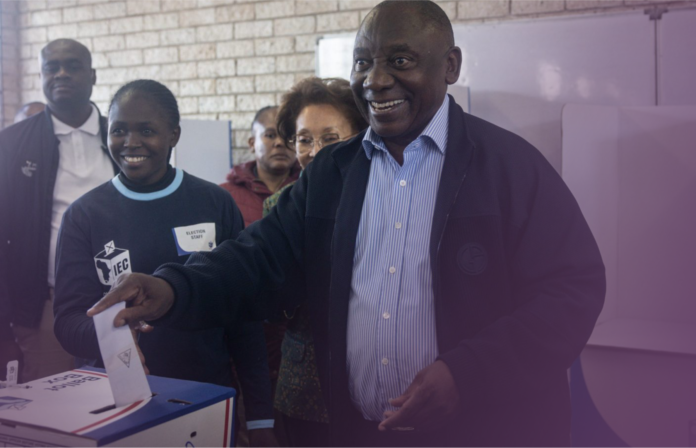The African National Congress (ANC), the party that ended apartheid in South Africa, has lost its parliamentary majority in a historic election. This marks a major shift for the country, which has been under ANC rule since 1994.
With almost all votes counted, the ANC received just over 40% of the vote in Wednesday’s election, far below the majority it has held for three decades. While the ANC remains the largest party, it will need to form a coalition to stay in power and reelect President Cyril Ramaphosa for a second term. The final results are pending official declaration by the independent electoral commission.
Opposition parties see this as a significant breakthrough for a country grappling with poverty and inequality. However, forming a coalition government will be challenging for Africa’s most advanced economy, as no agreements are in place yet.
The main opposition party, the Democratic Alliance, secured around 21% of the vote. The new MK Party, led by former President Jacob Zuma, came third with over 14% in its first election.
The ANC must now find coalition partners quickly, as Parliament has 14 days to elect a president after the final results are announced. The MK Party has stated that its condition for any coalition is the removal of Ramaphosa as ANC leader and president.
“We are willing to negotiate with the ANC, but not with Cyril Ramaphosa at the helm,” said MK Party spokesperson Nhlamulo Ndlela.
Over 50 parties contested the election, but the ANC is expected to seek alliances with one of the three main opposition parties. The MK Party and the far-left Economic Freedom Fighters favor nationalizing parts of the economy, while the centrist Democratic Alliance is seen as business-friendly, making an ANC-DA coalition more appealing to foreign investors.
Despite the uncertainty, opposition parties are celebrating the change as a needed shift for the country of 62 million, which is both Africa’s most developed and one of the most unequal. South Africa struggles with high poverty and unemployment rates, particularly among its Black population, which makes up 80% of the country and has been the ANC’s core support base.
The ANC has been criticized for failing to provide basic services like water, electricity, and housing, which has alienated many voters.
“We have said for the last 30 years that breaking the ANC’s majority is the way to rescue South Africa, and we have done that,” said Democratic Alliance leader John Steenhuisen.
Nearly 28 million South Africans were registered to vote, with a turnout expected to be around 60%, according to the electoral commission.



